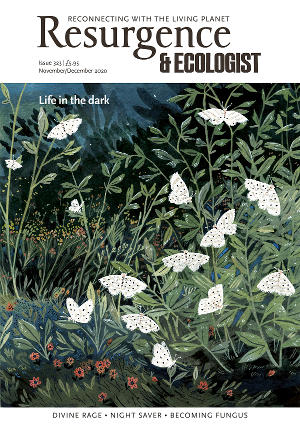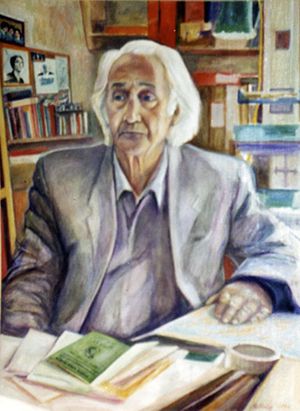Another flame of the peace and green movements has gone out. John Papworth has died aged 98. He was truly one of a kind.
Having been brought up in an orphanage in Essex, he went on to lead a truly colourful life – as cook, communist, conscientious prisoner, magazine editor, presidential adviser, and priest. However, most importantly for this obituary, he was also the first editor of Resurgence.
As an 18-year-old exposed to the horrors of war, he joined the Communist party, but he soon objected to its rigid authoritarianism. In 1955 he tried his luck as Labour party candidate in conservative Salisbury. Eventually he became convinced that remote, monolithic party organisations couldn’t meet people’s needs.
Papworth became a passionate and vocal peace activist. After one CND demonstration he was imprisoned alongside Bertrand Russell. For him nuclear weapons were the ultimate manifestation of the ‘big state’: small-scale societies wouldn’t ever want such horrendous weapons.
In the 1960s he became close friends with the Austrian economist Leopold Kohr, originator of the ‘small is beautiful’ concept and of societies where direct democracy and face-to-face communication were the norm. Papworth was the de facto originator of the concept of localisation.
In 1966 he became founding editor of Resurgence, collaborating with Leopold Kohr, E.F. Schumacher and Herbert Read. Soon afterwards, president Kenneth Kaunda offered him a position as his personal assistant in Zambia, and Papworth handed the editorship of Resurgence to Satish Kumar.
In Zambia Papworth was ordained as a priest in the Lusaka diocese, but in Britain he fell out with the church establishment. Among his controversial actions was his rewriting of the Ten Commandments, including the statement “Thou shalt enjoy the gift of sex, but thou shalt not procreate excessively.”
In 1968 he started a new magazine, Fourth World Review, devoted to promoting “small nations, governed by small communities”. It sponsored several Assemblies of the Fourth World, bringing together people from around the world who envisioned new, small-scale societies. He even ran for the UK parliament as a Fourth World candidate.
Papworth was close to Teddy Goldsmith, founding editor of The Ecologist, who shared his passion for small-scale democratic societies.
At his house in St John’s Wood Papworth started regular events called Councils for Posterity, where people discussed our legacies to future generations, and which later expanded into larger London venues. Once again he had generated an idea that had barely been considered previously.
Papworth’s personal charisma was noticed by the media, particularly after he staged several one-man demonstrations against busy and polluting traffic on London streets. Such initiatives are reflected in the theme of his book Small Is Powerful: The Future as if People Really Mattered. He eventually became the subject of two BBC documentaries.
Papworth ended his days in the Wiltshire village of Purton. He was still a vocal member of the local community. I wonder what he’d say about Brexit Britain. He may have been in favour of leaving the EU, but hardly of a country cherishing its status as a nuclear power.
His wife Marcelle predeceased him. They had three children.








